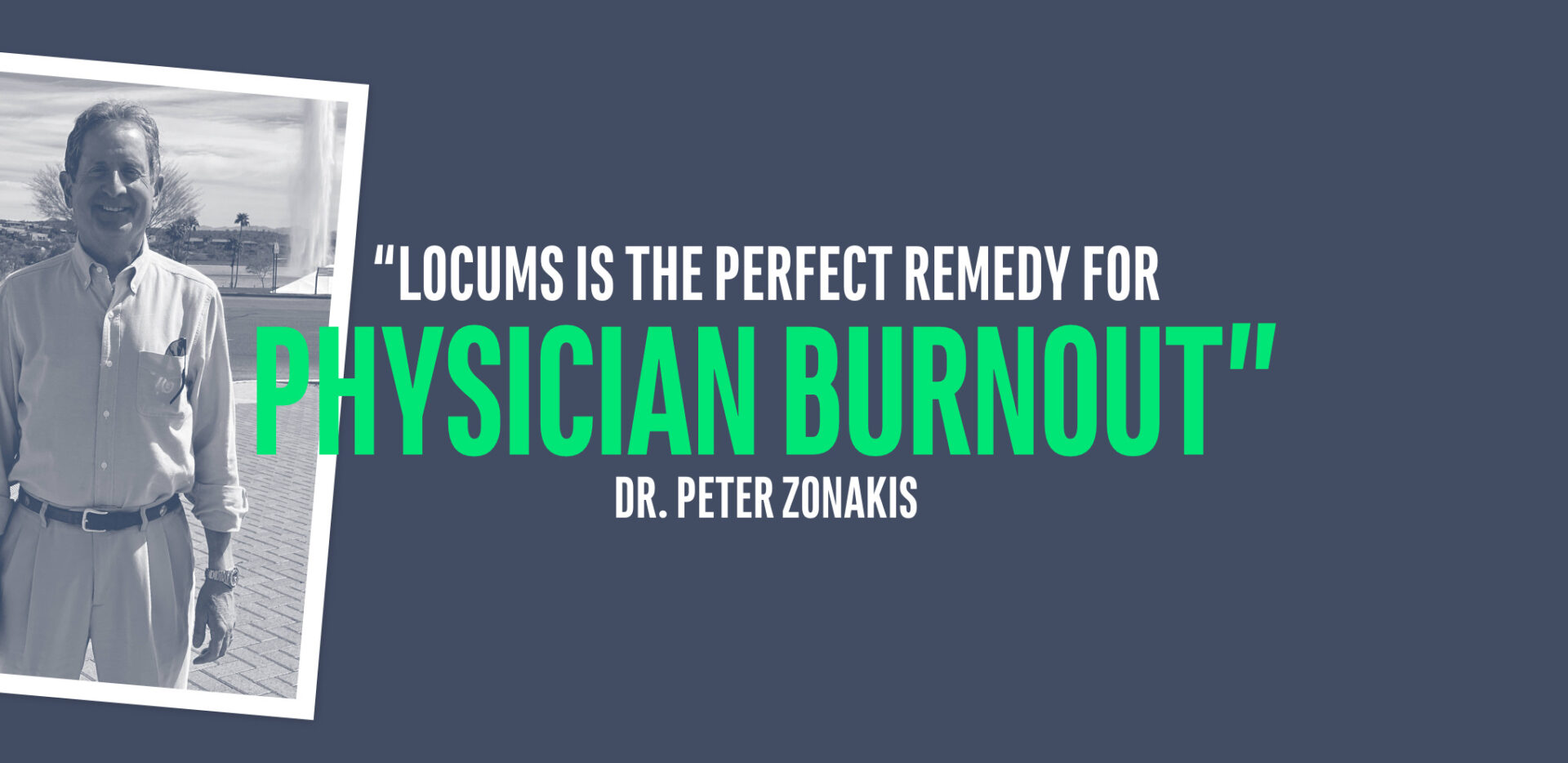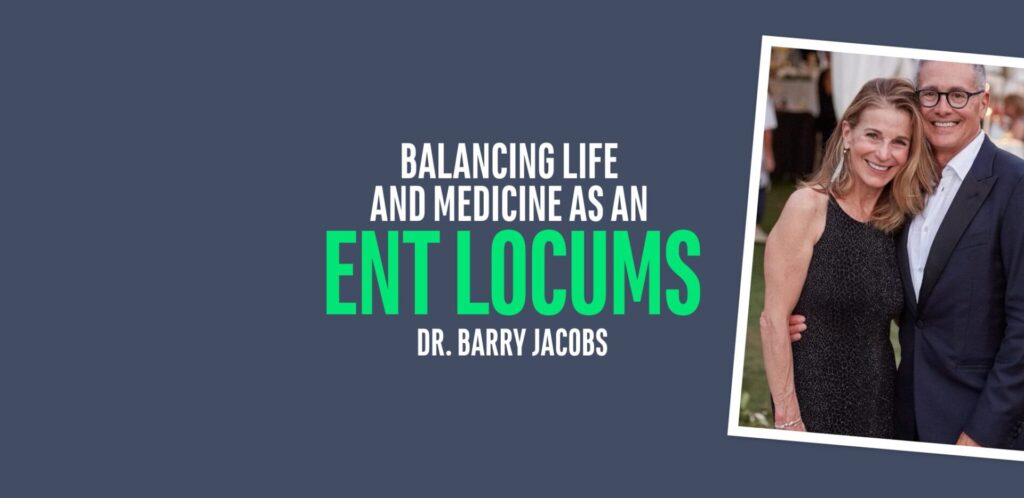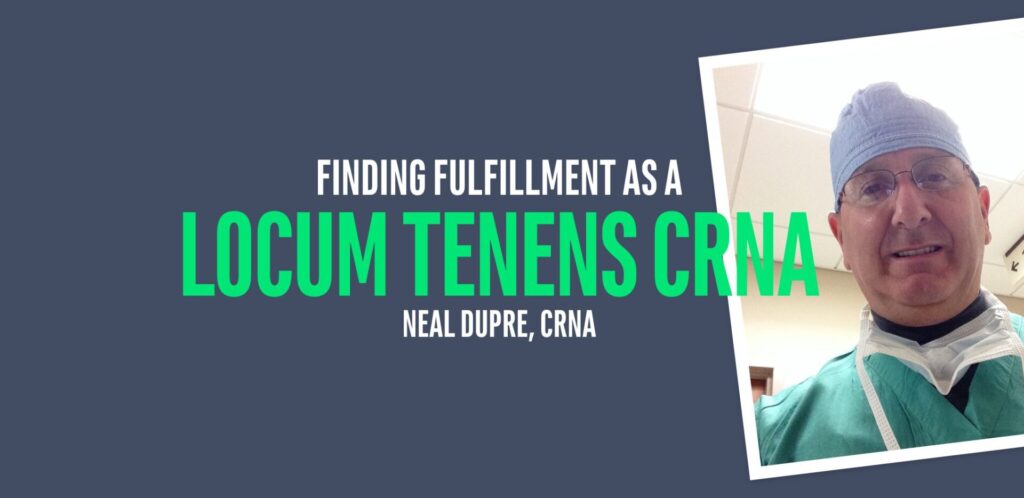Locums can be the perfect alternative for late-career doctors who want to continue practicing medicine in a more sustainable way.
Dr. Peter Zonakis is a great example. After spending most of his career at the same hospital, he transitioned to working as a locum tenens otorhinolaryngology doctor. After six months working as a locum tenens doctor, he reports feeling less exhausted, more appreciated, and re-energized about practicing medicine.
Here’s what he had to say about how locum tenens can make all the difference when it comes to physician burnout:
Tell us a little bit about what drew you to medicine, and to your specialty.
My interest in medicine started in college. I followed a local doctor in my hometown for a day while he was working in the emergency room, and I was totally enthralled. I wanted to be a part of it at all.
My path to medicine was very straight, and very fast. I finished medical school five months before my graduating class. I was only 24 years old when I had MD attached to my name.
As I did my rotations in medical school, [otolaryngology] just felt like the most natural fit for me. I always had a fascination with the anatomy and function of the head and neck. I was only 29 when I was board-certified in my specialty. So I was very young, but I knew exactly what I wanted to do.
What factors went into the decision to transition from full-time hospital practice to becoming a locum tenens doctor?
There were a few factors: first, the fact that you can set your hours and the weeks that you work to a level that you’re comfortable with. If you’re in a full-time practice, it’s either 100% on or 100% off.
The second factor is that as doctors get older, some of them are considered––incorrectly––too old to do a full-time or part-time practice. So locums is a perfect opportunity to continue practicing.
The big mistake that a lot of hospitals and medical practices make is that they’re always looking for a doctor that is 40 years old, who is going to devote 30 consecutive years to their practice. That is both unrealistic––there are just too many life events that can change that trajectory––and unsustainable.
[In contrast], a hospital knows that when they’re hiring a locums, they’re not getting somebody for 30 years of continuous full time employment. But they are getting someone who can fill an immediate need, and do it to a high standard. [Older doctors] fill that gap exceptionally well.
That’s why when you take a locums job, you’re embraced and welcomed into that environment––because they really need you. I feel probably more appreciated as a locums than I have in 20-25 years of full-time practice.
It’s great to hear that you feel so appreciated in your locum jobs, because that can be a concern for physicians just starting out, who worry that they might feel less accepted or welcomed as a temporary employee.
The level of appreciation and professional cooperation I’ve felt from my locums work is outstanding. It starts with being credentialed by Hayes Locums, so that from the beginning, the hospital has a very good feeling about who their doctor is. And then, if you go in with an open mind, you get to become part of that community. They take you in.
This is my first locums job, and what I’ve found is that the staff very much wants to help and to please the locums doctor, because you’re helping them fill a need and they want you to stay, they want you to be satisfied.
All of us doctors have a high level of pride in our work. All of the nurses, techs and other physicians that we work with are trying to succeed at what they’re doing. We all know each other and respect each other.
Every now and then, you also meet another locums. You get enough locums together and you feel like you’re an all-star team [laughs]. We’re all just putting our talents together to get the job done.
What is it like practicing as a locum tenens doctor vs. as a hospital employee?
First, I’m not required to attend any of the hospital meetings. I go in, I do my work, I handle anything that comes along, but I don’t have to participate in the hospital politics. I’m literally only asked to do what I was trained to do back in medical school and residency.
And then when I’m off, I’m really off. I can shut my phone off at night. I can enjoy a glass of wine. I can walk my dogs without any interruption. When I’m off, I can be the most relaxed guy in the world. And then when I’m working, I turn it back on.
In effect, locums is practicing medicine without 98% of the other stuff that most doctors are accustomed to having to deal with. Even though I see numerous patients with numerous problems, I finish a day’s work not upset, and not mentally exhausted.
I really feel that locums has made me a better person. That’s been one of the unexpected benefits of working the locums lifestyle: I look forward to going to work every day.
It’s interesting you bring up the administrative side: physician burnout is a huge topic right now, and one of the top drivers that physicians cite as a cause for burnout is the administrative burden. Is that something that locums can help alleviate?
My best advice to any physician who thinks they’re headed toward burnout is: try locums.
I’ve read a lot of articles about burnout, and they come up with these elaborate methods to reduce it, but quite frankly, my advice is just to change your work environment.
I can’t emphasize enough that locums is the perfect remedy for physician burnout. You can still be a doctor, but you’re not undergoing stresses that we were never trained to deal with. You can actually enjoy the practice of medicine.
*This interview has been edited for clarity and length.



